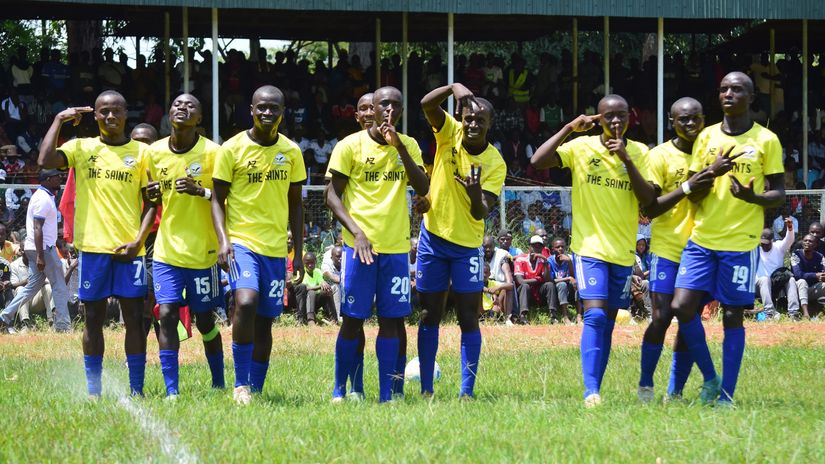The Kenya National Examinations Council’s recent announcement that KPSEA and KJSEA assessments will no longer be guarded by police officers, except in areas with volatile security, marks a significant and symbolic turn in Kenya’s educational journey. For the first time in decades, national examinations at the basic level will proceed without the shadow of armed officers stationed at school gates, corridors, and examination rooms. This is more than an administrative adjustment; it is a statement of trust, a cultural shift, and a deliberate step toward restoring humanity, confidence, and dignity in Kenya’s assessment process.
For years, examinations in Kenya have carried the aura of a national crisis. Streets would fall silent, schools would go on lockdown, and even parents would hold their breath. Learners as young as twelve sat for their final papers under the gaze of uniformed officers—symbols of authority, discipline, and, for many, fear. The presence of police in exam centers was justified by the need to deter cheating, secure exam papers, and maintain order. Yet, in reality, it also reinforced the perception that examinations were punitive events – battles to be fought, not learning milestones to be celebrated. The atmosphere of anxiety it created often defeated the very purpose of assessment: to measure learning fairly and objectively in a calm, enabling environment.
KNEC’s decision is therefore not merely logistical but profoundly philosophical. It challenges the long-held assumption that integrity in examinations can only be guaranteed through militarization. It asserts, instead, that integrity can also arise from professional ethics, community trust, and a shared sense of responsibility among teachers, learners, and administrators. In this sense, the council’s move reflects an evolving educational mindset—one aligned with the Competency-Based Curriculum (CBC), which seeks to replace the fear of failure with the pursuit of mastery, collaboration and growth.
It is easy to forget how we arrived here. The militarization of exams began in the 1990s, when rampant exam leaks and malpractice scandals rocked public confidence in national assessments. Drastic measures were introduced: exam materials were stored in metallic containers under armed escort; head teachers were treated as suspects; and officers patrolled classrooms as if guarding a crime scene. While these efforts restored order, they also institutionalized fear. Examinations became less about learning outcomes and more about survival. Pupils associated exams with punishment, not progress; with tension, not triumph.
ALSO READ:
Zetech Varsity launches first Ageing Studies Institute to champion senior welfare
By easing the police presence, KNEC is sending a clear message: that education should not be policed, it should be nurtured. This act of demilitarization redefines what it means to protect exams. True security, KNEC seems to say, comes not from guns at the gate, but from integrity in the heart – teachers who uphold professionalism, parents who nurture honesty and pupils who sit their papers with confidence in their preparation. This is a paradigm shift from external enforcement to internal conviction.
Of course, critics will argue that this decision could open new loopholes for malpractice, especially in regions where exam integrity has been historically fragile. They may see it as a risky experiment that could erode the gains made in curbing cheating. But this argument underestimates the maturity of Kenya’s current assessment systems. The integration of digital tracking of exam materials, the training of center managers and the closer supervision by multi-agency teams at the county level have already created strong safeguards. Moreover, in devolved assessment structures like KPSEA and KJSEA, where school-based evaluation plays a significant role, the risk of national-scale cheating is greatly reduced. The integrity of exams now depends more on school culture than on security machinery.
What is truly at stake here is the kind of society we want to build through education. A nation that stations armed guards around its children during exams sends a subtle but powerful message: that learning is a dangerous affair, that learners are suspects, and that teachers cannot be trusted. Conversely, a nation that entrusts its schools to uphold honesty and calm during assessments affirms that education is a partnership, not a policing operation. It communicates confidence in its educators and faith in its systems. That is the spirit that should define 21st-century assessment.
ALSO READ:
MMUST orders resumption of classes after stakeholders’ consultations
The demilitarization of exams is also a psychological victory for learners. It recognizes that children perform best in environments that are safe, supportive and free of intimidation. A ten-year-old sitting for KPSEA should not have to write under the watchful eyes of an armed officer – an image that evokes fear rather than focus. Removing that visual symbol of coercion makes the classroom feel like what it truly is: a place of learning, not a high-security zone. It allows children to associate exams with personal growth and achievement, not fear and panic.
Furthermore, this reform aligns Kenya with global educational best practices. In most countries, examination integrity is maintained through professionalism, not policing. Schools in Finland, Singapor and South Korea – education systems Kenya often seeks to emulate – trust their teachers to conduct assessments honestly and efficiently. They rely on technology, ethics, and transparency, not on security hardware or armed presence. By following this path, KNEC is signaling that Kenya’s education system is maturing – moving from reaction to reflection, from enforcement to empowerment.
Ultimately, the success of this policy will depend on all stakeholders embracing the spirit behind it. Teachers must see themselves as custodians of trust, not merely invigilators of tests. Head teachers must lead by example, ensuring that integrity becomes part of school culture. Parents must teach their children that success is earned, not stolen. And KNEC must continue refining its systems to make cheating both difficult and undesirable. If all actors rise to the moment, Kenya will have taken a decisive step toward an examination culture rooted in dignity, fairness and calm.
The unmilitarizing of KPSEA and KJSEA is, therefore, more than an operational shift—it is a statement of confidence in Kenya’s teachers, faith in the honesty of its learners, and hope for an education system that no longer needs guns to guarantee integrity. KNEC’s move deserves both applause and support, for it brings us closer to the true essence of education: a journey of trust, not terror.
By Ashford Kimani
Ashford teaches English and Literature in Gatundu North Sub-county and serves as Dean of Studies.
You can also follow our social media pages on Twitter: Education News KE and Facebook: Education News Newspaper for timely updates.
>>> Click here to stay up-to-date with trending regional stories
>>> Click here to read more informed opinions on the country’s education landscape






